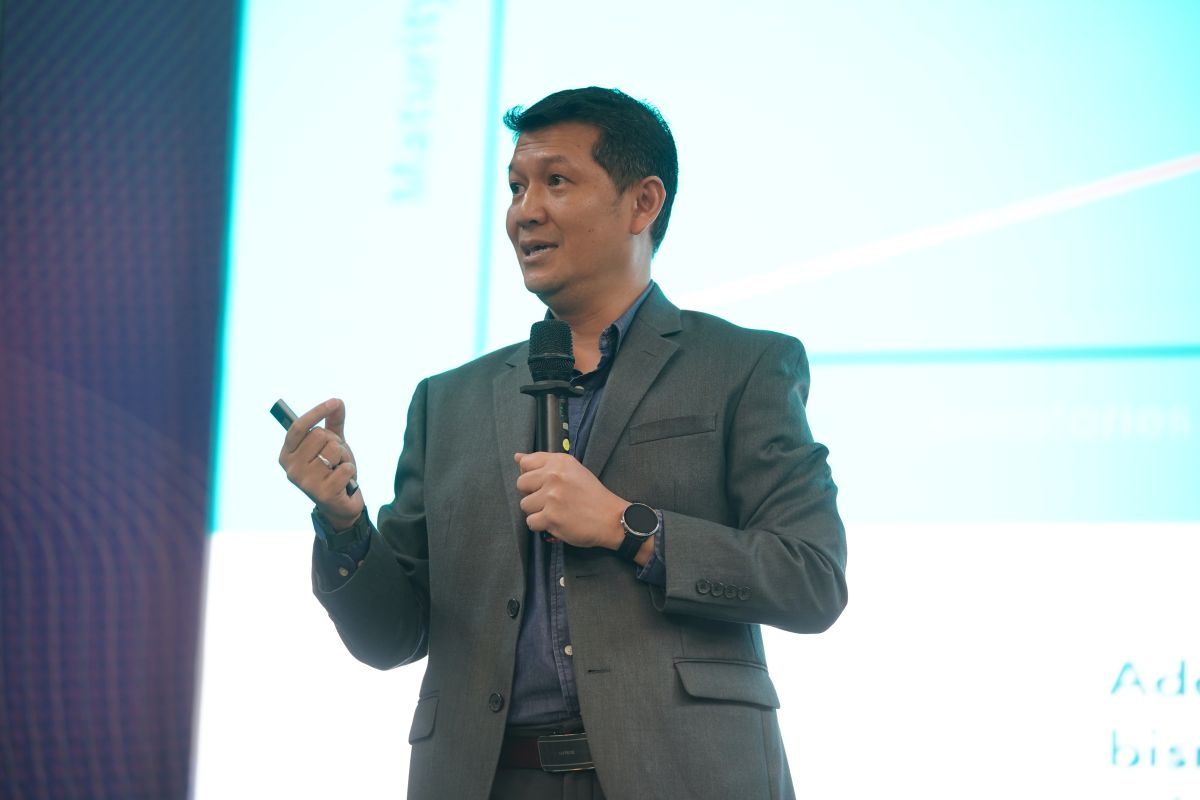ITB Is Committed to Providing Access to High-Quality Education
By M. Naufal Hafizh, S.S.
Editor M. Naufal Hafizh, S.S.

PRESS CONFERENCE
Number: 53/IT1.B03.2/HM/2024
January 26, 2024
BANDUNG - Institut Teknologi Bandung (ITB) remains steadfast in its commitment to providing access to high-quality education for all students. In pursuit of this noble objective, ITB is dedicated to upholding statutory provisions as a demonstration of its commitment to accountability in education provision.
As a State Higher Education Institution of Incorporated Legal Entity (PTN-BH), ITB, in accordance with Government Regulation Number 65 of 2013 outlining ITB statutes, enjoys autonomy in three key areas: study program management, employee management, and independent financial management. The regulation of the Single Tuition Fee (UKT) serves as a conditional autonomous policy, with its determination involving consultation with the Ministry of Education, Culture, Research, and Higher Education.
Prior to the issuance of Regulation Number 2 of 2024 by the Minister of Education, Culture, Research, and Technology of the Republic of Indonesia, the legal basis referring to the Unit Standards for Higher Education Operational Costs at State Higher Education Institution within the Ministry of Education and Culture was Regulation Number 25 of 2020. According to Article 9, paragraph (1) of the Minister of Education and Culture Regulation Number 25 of 2020, students are required to pay the UKT in full every semester. This obligation binds all ITB students and must be fulfilled accordingly. This clarification addresses a statement from Mr. Taufiq Pangestu, a Student Representative on the ITB Board of Trustees. The statement relied heavily on personal telephone conversation between the person in question and the Rector of ITB. Unfortunately, this conversation was shared to social media without the consent of the Rector of ITB.
ITB provides various admission selection paths for prospective undergraduate students, including the Achievement-Based National Selection (SNBP), Test-Based National Selection (SNBT), Independent Selection (SM), and International Undergraduate Program (IUP). Students accepted through SNBP and SNBT are categorized into five UKT payment levels, ranging from UKT 1 (the lowest; Rp 0) to UKT 5 (the highest). SM-ITB students, however, are responsible for covering the full costs of their undergraduate education at ITB. Education fee subsidies are not granted to IUP and SM-ITB students, except for SM-ITB students holding the Indonesia Smart College Card (KIP-K) from SMA/MA in underdeveloped or outermost areas, for whom ITB waives education fees.
In addition to these commitments, ITB also actively supports students with education costs through a scholarship program managed by the ITB Directorate of Student Affairs (https://kemahasiswaan.itb.ac.id/beasiswa/). This scholarship program offers various benefits, including support for living costs and UKT payments. These scholarships are continually updated and accessible to all ITB students. The quantity of scholarship awardees, the monetary value granted, and the number of collaborating partners in the scholarship show a consistent annual increase. This trend underscores ITB's sincere commitment to actively supporting students in their studies at the institution.
Approaching Semester II of 2023/2024, ITB students are invited to complete the Study Plan Form (FRS) on the Academic Information System (SIX) after settling the UKT for Semester II 2023/2024 and the UKT from the previous semester. Various payment methods are available to students, including virtual account services, credit cards, and options through nonbank institutions specializing in education that are registered and supervised by the Financial Services Authority (OJK).
For students facing challenges in paying UKT, ITB through the Directorate of Student Affairs outlines procedures for applying for UKT relief and installments each semester. In the second semester of 2023/2024, undergraduate students from the classes of 2022, 2021, 2020, and 2019 can apply for UKT relief until January 2, 2024. Additionally, the UKT installment application period starts from December 18, 2023.
To provide a comprehensive overview, ITB reports that in December 2023, 1,800 students applied for UKT relief. Among them, 1,492 students received the flexibility to pay the Educational Implementation Fee (BPP) in installments, 184 students benefited from a one-semester UKT reduction, and 124 students received a permanent UKT reduction until graduation.
For ITB students who have not settled the UKT or Educational Implementation Fee (BPP) for the first semester of 2023/2024, they will be unable to complete the FRS for the second semester. These students have the option to apply for academic leave, exempting them from BPP bills without impacting their study duration. However, if academic leave is not applied for, their student status at PD Dikti will be recorded as inactive but their study period is still considered, and thus 50% of the BPP will be due as per regulations.
All academic and financial administration procedures are detailed in the ITB Rector's Regulation. Students have been informed through socialization efforts and can access these rules at any time for further information. In case of any confusion regarding the said regulation, students may seek assistance from their faculty or school, or contact the ITB Directorate of Student Affairs.
The explanation above emphasizes that ITB, in addition to complying with state regulations requiring full UKT payment each semester, remains committed to providing solutions for SNBP and SNBT students to pursue their education at ITB despite limitations and challenges. This commitment is evident through access to scholarships and UKT reduction mechanisms outlined above. It is crucial for ITB to consistently conduct a thorough assessment process for students to ensure that the distribution of aid is fair, targeted, and aligned with educational goals.
Contact Person:
Head of the ITB Communications and Public Relations Bureau
Dr. Naomi Haswanto, S.Sn., M.Sn.
Translator: Hanifa Juliana (Urban and Regional Planning ‘20)
Editor: Ariq Ramadhan Teruna (Chemical Engineering ‘21)



.jpg)

.jpg)
